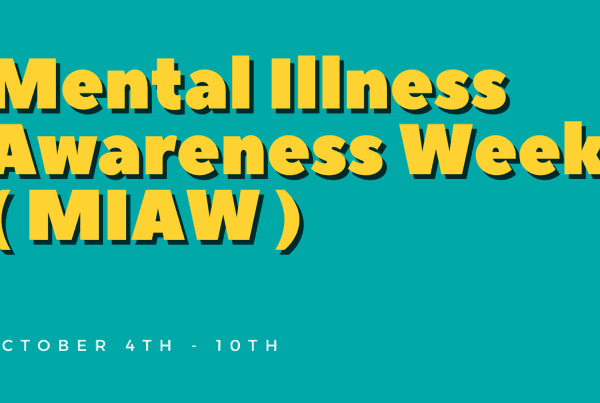It’s summertime! For a lot of kids, that means beach parties, late-night dancing, sleeping in, and literally just about anything that isn’t schoolwork. But for a lot of kids, the routine and structure of school – while not always as good as it could be – plays an important role in helping them stay grounded and feel mentally stable.
Structure and routine are important for many of us, and without time-based boundaries and schedules, we can find ourselves struggling to get anything done, waste entire days on solitary activities, and watch the summer roll on by. Not all teens jump at the opportunity to start planning activities, meeting friends, and hanging out with new people. Many spend the next few weeks mostly in their room, with serious sleep schedule problems, and a snowballing case of anxiety.
If you’re looking for tips to help your teen stay mentally healthy throughout the summer break, you’ve come to the right place. At its root, it’s all about structure. That doesn’t mean forcing your teen into a rigid schedule, not of their own making – but it might mean pushing them to pursue their interests, helping them schedule activities with friends, or teaching them a few basic life skills, whether it’s how to make soup, change a tire, or drive stick. Here are a few other ideas.
Spend More Time Outdoors
It’s a bit of a cliché, especially with how people online are telling each other to go “touch grass” when an online conversation gets a bit too out of touch with reality, but the outdoors has a lot more to offer teens than just being an alternative to spending the day in front of a screen. There are genuine health benefits, both physical and mental, to getting a lot of sunlight during the summer break, breathing in some fresh seaside or countryside air, and going for a hike or two.
Even just the act of being out in nature amid the greenery of a verdant plain or lush mountain forest can do wonders for our psychological wellbeing, and at this point, scientists have told us multiple times that we need a lot more nature in our lives, especially for teens (and parents!) who are living mostly in or around urban environments.
Tackle a Project Together
When your hands work on something completely new, and you begin to sink hours into a manual project you’re invested in, you’re tapping into an incredible resource – your brain. Any hobby that requires you to think and forge ahead, to figure out solutions to problems, to come up with new ways to move forward, and to improve on something that already works, brings with it an immense amount of satisfaction and genuine neurological benefits. Like anything else, your brain is the kind of thing that works best when you’re using it, a lot.
If your teen isn’t already interested in a hobby that fosters that kind of thinking – such as sculpting or writing, making their own music, writing programs for fun, or working on engines – why not tackle something like that together? Pick a project you might both have some fun with and set aside a few hours every week to do it together. It could be something from your own line of work or personal hobby – maybe you own a 3D printer, or you like to fix old record players, or you write and record music at home – or something you suspect your teen might be into!
Develop a New Life Skill
Aside from fostering or encouraging your teen to pick up new hobbies or invest more heavily into existing ones, you can also help teach them important life skills. It could be something incredibly boring, like writing a balance sheet and doing basic accounting, or filling out a tax return. Or it could be something more manual, like making pizza from scratch, doing an oil change, fixing a leaky faucet, starting a campfire. You could take courses together – learn how to make sushi over the weekend or attend a first aid course.
Help Your Teen Create and Maintain a Routine
We’ve already mentioned how important it is to get into a routine – that doesn’t mean your teen should account for every hour of the day! But it goes a long way to set a general bedtime and wake time, eat at about the same times each day, leave a slot open each day for journaling and chores, or use other things to help give your teen structure, such as encouraging them to continue their sport or physical passion while out of school.
Encourage Your Teen to Spend Time With Other People
There are restrictions to consider and limitations to this option based on whether your teen meets up with their friends indoors or outdoors, whether everyone is vaccinated, and what the rates are like where you live – but we have come a long way since the restrictions of the first few months of the pandemic, yet it has certainly left its mark on many teens, especially those who were already inclined towards being introverted when COVID-19 began. It might be hard to do so, but try to encourage your teen to come out of their shell and spend some in-person time with their friends again.
More Physical Activities
A nice hike or a visit to the beach is great, but regular physical exercise – on daily basis, even if just for a few minutes – is another great way to make use of the summertime’s longer daylight and copious supply of vitamin D. If your teen isn’t the athletic type, why not work out with them? Take them on a jog or a daily bike ride or renew your gym membership and hit the weights together.
What About Other Classes?
School might be out, but that doesn’t mean your teen can’t keep learning. Neither does that mean you need to organize cram school and make them prep for the SATs! Especially if they’ve been desperately looking forward to summer as a chance to get some rest and not keep their head in the books.
However, there are plenty of afternoon classes for a variety of interesting subjects during summer, from self-defense to music. Let them pick something out! It may be an unusual summer break, with a looming late-stage pandemic up and about. But that doesn’t mean you can’t make the most of it, together – and help both your teen and you have a better summer.








